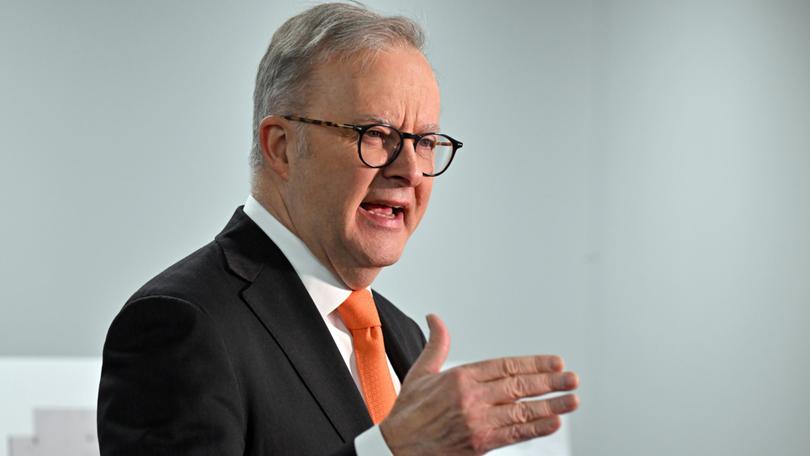EDITORIAL: Hard lessons for Anthony Albanese in election annihilation of UK conservatives
Although their views and missions may align, there’s not much positive for Anthony Albanese to take from Keir Starmer’s landslide victory.

The Conservatives knew it was going to be bad. Terrible even.
It turned out to be even worse than that. A cataclysmic annihilation ending 14 years of Tory rule, presided over by an Australian-style revolving door of leaders, most recently the comedically out-of-touch Rishi Sunak.
The “Starmageddon” predicted by the British press had come to pass.
Sign up to The Nightly's newsletters.
Get the first look at the digital newspaper, curated daily stories and breaking headlines delivered to your inbox.
By continuing you agree to our Terms and Privacy Policy.The high-profile casualties kept on mounting. At last count, a record 11 Cabinet members had lost their seats. Key figures to be booted include Mr Sunak’s predecessor as PM Liz Truss, and Penny Mordaunt (most recognisable to Australians as the solemnly sword-wielding figure during King Charles’ coronation).
Counting will continue, but it quickly became clear that Sir Keir Starmer’s Labour party would take government with a very strong majority.
His election as UK Prime Minister is a rare win for a centre-left outfit. Across much of the Western world, voters have instead been lurching towards the right.
Sir Starmer is of a similar ideological extraction to his Australian counterpart Anthony Albanese.
Both were active in student politics in their youth, indulging in all the usual left-wing causes. Both have tempered their views somewhat in the decades since. Unlike Mr Albanese, Sir Starmer is not a career politician, having only entered Parliament in his fifties.
But although their views and missions may align, there’s not much positive for Mr Albanese to take from Sir Starmer’s landslide victory.
As is becoming common around the world, the result in the UK was not a matter of a populace emphatically voting a promising political outfit in, but a case of voting a tired and self-interested government out.
It’s another example of anti-incumbency which may come to bite Mr Albanese and his Labor Government next year.

Beyond his promise of “change”, most Brits might struggle to articulate exactly what Sir Starmer had pledged to do differently.
Sir Starmer didn’t win a landslide victory because voters were enchanted by his corporate tax plan or infrastructure investment strategy.
Labour won by virtue of the fact that they weren’t the other mob. The ones who had lurched from scandal to scandal, from prime minister to prime minister. Partied while the rest of the country was in lockdown. Brexit had wiped billions from the economy, eroded social cohesion and left ordinary people worse off.
It was time for someone new. Anyone new.
If you squint a little, there are some similarities between Mr Sunak’s Britain and Mr Albanese’s Australia.
Australia’s economy too is facing significant headwinds. Productivity has slowed to practically zero while stubbornly high inflation and interest rates mean Australians feel financially worse off than they did a few years ago.
The rise of identity politics, as illustrated by the Fatima Payman saga, and the failed Voice referendum have had a negative effect on our social cohesion. Many Australians feel disaffected and cast out.
They’re problems Mr Albanese will need to address, lest his Government face a similar fate.
